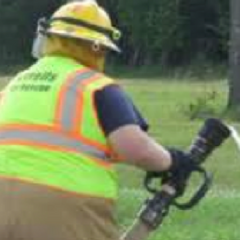Recommended Posts
I didn't say we couldn't manage it. We can. But fear mongering tropical diseases is one of the more common threats that are stated.
[Quote]Reduction in growing seasons? Can probably be mitigated by expanding northern farms and abandoning southwest farms (happening now.)
So it's manageable. Why the hell is it mentioned?
[Quote]But the odds of us changing the climate significantly and having nothing bad happen? Very low.
The odds are zero of climate changing and nothing bad happening. Just like the odds are zero of the climate changing and nothing bad happening. I'm reading from you that the threats I've mentioned, even if they DO happen (which you suggest probably won't) will be manageable. Sure, it'd suck for Florida citrus farmers to lose their business to georgia. Just like Georgia citrus farmers would dislike the peach farms going up to Virginia.
[Quote]I compare it to looking at a syringe sitting on the table. You don't know what's in it, but someone on a reality show will pay you some money to inject yourself with it if you do it in the next minute. Is it sodium pentathol? No. Does it contain Ebola? No. Does it contain lots of potassium? No.
How many of those assurances would you need before you inject yourself with it?
I compare it more to going into a grocery store. You see the Prop 65 warning sign telling that you're going to be exposed to cancer causing agents if you walk in. You can reassure yourself that you'll be fine. But think about your kids. Would you be willing to expose your kids to carcinogens just to get something to eat? How many warnings do you face before you stop going to grocery stores?
Or even a CT. Let's say your son falls and hits his head. Does he get a CT or not? There's a 1:400 chance that the CT will give him cancer. Now he's vomiting, disoriented, and seizing. Do you allow the CT knowing the long-term risks that if the CT shows clean, you may have just given him a death sentence.
Long-term risk? Or short-term risk mitigation? A choice.
My wife is hotter than your wife.
billvon 3,173
?? IPCC 2013 prediction is about 6cm by 2025, which is about 2.3 inches.
> But sea ice is a big deal as an indication of hat's going on. Is Arctic ice
>meaningless in climate discussion?
No - but again you entitled this post "evidence that will convince me of the danger." How does a loss of sea ice endanger you?
>I'm looking for waypoints, bill. Disaster won't just hit overnight.
Right; that's sorta the whole point here It will take decades.
>So you are correct. We don't know. We can't know.
Those are not the same thing. You don't know if getting really drunk and trying to drive home will get you arrested or killed. But you do know that it's a bad idea to try, because you know what CAN happen. Can anyone prove you won't make it? No. But it would be foolish to say "since you DON'T know that I will be injured or arrested, you CAN'T say that it's a bad idea."
>I compare it more to going into a grocery store. You see the Prop 65 warning sign
>telling that you're going to be exposed to cancer causing agents if you walk in.
>You can reassure yourself that you'll be fine. But think about your kids. Would
>you be willing to expose your kids to carcinogens just to get something to eat?
>How many warnings do you face before you stop going to grocery stores?
See, I don't see that as similar at all. You have probably walked into grocery stores thousands of times and never been injured by prop-65 problems. We have never altered the climate to this degree. We have not "walked into this grocery store thousands of times before." We have only predictions, not experience, to guide us.
So to make this a slightly more relevant example, let's say you and your kids are walking through a tour of a lab that you haven't been to before. You get lost and end up behind a door that says "WARNING - Ionizing radiation hazard - class III protection required." Would you walk right through it, since you've never had radiation sickness before, and you don't know that you'll be injured? Or might you consider it worth the time to find an alternative route - because you might be injured?
quadeSo, basically what you're saying is you're like one of the council on Krypton who will only believe it's going to blow up after it actually does.
Mmmm...okay. I guess that's "a" strategy.
No, Paul. Inot talking about science fiction. This isn't a Hollywood script.
Bill indicates that he doesn't believe the planet is going to blow up. We are a long way from dangerous climate change, aren't we? I'm not saying I want to wait until disaster. I provided hat I view as waypoints that provide evidence that shit's about to get bad.
[Rely]An alternative might be one where you look at the provable small scale changes that have already happened and understand there is a critical point beyond which it they will cascade into an irreversible issue.
Two problems with that. First is that you didn't give an example. Second is that I was explicit in my distaste for post hoc attribution of events. I'm pointing to small scale changes I want to see. Texas gets too warm to grow wheat. Sea level rises significantly more than an inch per decade (which is well within natural variation). Let's see what the ocean rise rate does when we've drained all the aquifers. That sort of thing.
[Reply]The fact is, we're already beyond the point of no return on this. It simply hasn't fully manifested itself yet.
So if nothing can be done to change it, why try to change? You're saying nothing can be done. But do something, anyway?
Show me the science that says it is irreversible. She me the science that says what the damned end is.
[Reply]The catastrophic milestones you've asked to see as proof are inevitable.
The milestones asked for are no catastrophic. They are milestones that are very pre-catastrophe.
[Reply]Forget about the exact dates, they are going to happen
I agree. Inevitable. But if it happens in 100 years versus 1000 years is a big problem. How quickly are we getting there?
[Replt]and we've crossed the point where we can go back to pre-inductrial revolution levels anywhere in the foreseeable future.



.thumb.jpg.4bb795e2eaf21b8b300039a5e1ec7f92.jpg)




But why should I worry, I live next to 1/5 of the world's accessible fresh water.
The only sure way to survive a canopy collision is not to have one.
Share this post
Link to post
Share on other sites